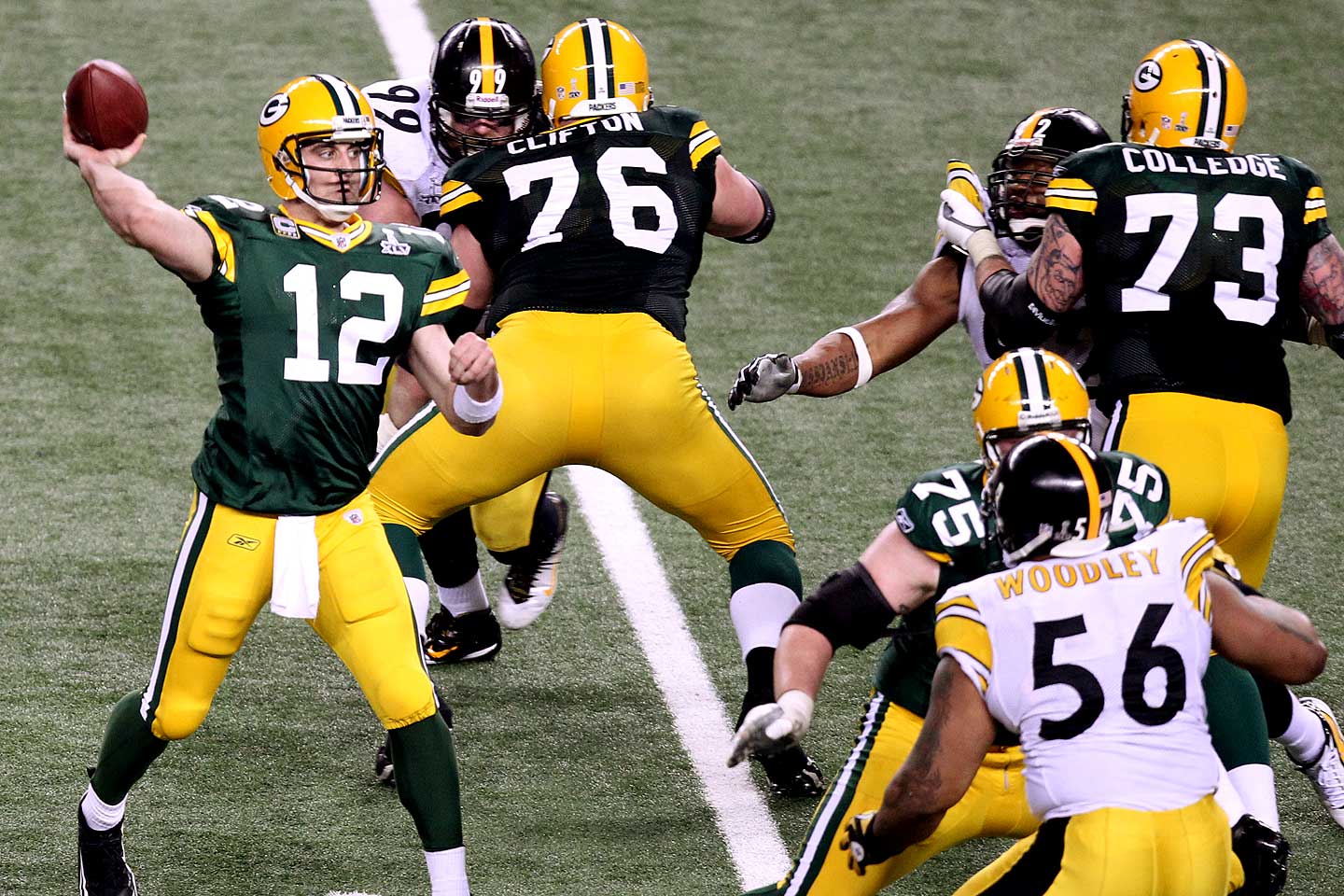Did Aaron Rodgers Win A Super Bowl? An In-Depth Look At His Legacy
Aaron Rodgers is one of the most celebrated quarterbacks in NFL history, but questions often arise about his Super Bowl achievements. While he has had an illustrious career, fans and analysts alike are curious about his performance in the league's biggest game. This article delves into whether Aaron Rodgers won a Super Bowl and examines his contributions to the Green Bay Packers.
Aaron Rodgers' name is synonymous with excellence on the football field. His ability to read defenses, make precise throws, and execute game-winning plays has earned him numerous accolades. However, the question of whether he has won a Super Bowl remains a topic of discussion among sports enthusiasts.
This article will explore Aaron Rodgers' career, his Super Bowl performance, and the impact he has had on the NFL. By the end, you'll have a comprehensive understanding of his achievements and legacy in professional football.
Read also:Raj Koothrappali The Quintessential Nerd And His Journey Through The Big Bang Theory
Table of Contents
- Biography of Aaron Rodgers
- Did Aaron Rodgers Win a Super Bowl?
- Early Career of Aaron Rodgers
- Key Statistics of Aaron Rodgers
- Aaron Rodgers' Super Bowl Appearance
- Legacy of Aaron Rodgers in the NFL
- Challenges Faced by Aaron Rodgers
- Comparisons with Other Quarterbacks
- Future Prospects for Aaron Rodgers
- Conclusion
Biography of Aaron Rodgers
Aaron Rodgers was born on December 2, 1983, in Chico, California. He grew up in a football-loving family and quickly developed a passion for the sport. His journey to becoming one of the best quarterbacks in NFL history began in high school, where he showcased his exceptional talent.
Aaron Rodgers' Personal Information
| Full Name | Aaron Charles Rodgers |
|---|---|
| Date of Birth | December 2, 1983 |
| Place of Birth | Chico, California, USA |
| Height | 6 ft 2 in (188 cm) |
| Weight | 225 lbs (102 kg) |
| Position | Quarterback |
Aaron Rodgers attended Butte Community College before transferring to the University of California, Berkeley, where he played college football. His performances at Cal caught the attention of NFL scouts, leading to his selection in the 2005 NFL Draft.
Did Aaron Rodgers Win a Super Bowl?
Yes, Aaron Rodgers did win a Super Bowl. In Super Bowl XLV, played on February 6, 2011, Rodgers led the Green Bay Packers to victory against the Pittsburgh Steelers. The Packers triumphed with a score of 31-25, marking a historic moment in Rodgers' career.
Rodgers' performance in the game was nothing short of spectacular. He completed 24 of 39 passes for 304 yards and three touchdowns, earning him the Super Bowl MVP award. This victory solidified his status as one of the elite quarterbacks in the NFL.
Early Career of Aaron Rodgers
Aaron Rodgers was drafted by the Green Bay Packers in the first round of the 2005 NFL Draft with the 24th overall pick. Initially, he served as the backup to Brett Favre, learning from one of the greatest quarterbacks in NFL history. During this time, Rodgers honed his skills and prepared for his eventual rise to stardom.
Key Milestones in Early Career
- 2005: Drafted by the Green Bay Packers.
- 2008: Became the starting quarterback for the Packers.
- 2009: Named NFL MVP for the first time.
Rodgers' early years were marked by patience and perseverance. His dedication to improving his craft set the stage for his future success.
Read also:Devin Hervey A Rising Star In The World Of Music And Entertainment
Key Statistics of Aaron Rodgers
Aaron Rodgers has amassed an impressive array of statistics throughout his career. Below are some of his most notable achievements:
- Career Passing Yards: Over 60,000 yards.
- Career Touchdown Passes: More than 450.
- Passer Rating: One of the highest in NFL history.
According to Pro Football Reference, Rodgers ranks among the top quarterbacks in several statistical categories, including passer rating and touchdown-to-interception ratio. These numbers underscore his dominance on the field.
Aaron Rodgers' Super Bowl Appearance
Aaron Rodgers' Super Bowl appearance in 2011 was a defining moment in his career. The game showcased his ability to perform under pressure and deliver when it mattered most. His leadership and precision were instrumental in the Packers' victory.
Super Bowl XLV Highlights
- Rodgers completed 61.5% of his passes.
- He threw for 304 yards and three touchdowns.
- His passer rating was an impressive 103.9.
These statistics highlight Rodgers' exceptional performance in one of the most important games of his career. His ability to stay calm and focused under pressure is a testament to his greatness.
Legacy of Aaron Rodgers in the NFL
Aaron Rodgers' legacy in the NFL is one of excellence and consistency. Beyond his Super Bowl victory, he has earned numerous accolades, including multiple MVP awards and Pro Bowl selections. His influence on the game extends beyond statistics, as he has become a role model for aspiring quarterbacks.
Impact on the Game
Rodgers' innovative approach to the quarterback position has changed how the game is played. His ability to extend plays and make accurate throws under pressure has set a new standard for excellence. Coaches and players alike study his techniques to improve their own performances.
Challenges Faced by Aaron Rodgers
Despite his success, Aaron Rodgers has faced several challenges throughout his career. From dealing with injuries to navigating off-field controversies, he has shown resilience and determination in overcoming obstacles.
Notable Challenges
- Injuries: Rodgers has battled injuries, including a broken collarbone, but has consistently returned to perform at a high level.
- Contract Negotiations: His contract disputes with the Packers have been widely publicized, highlighting the complexities of professional sports.
Rodgers' ability to persevere through these challenges speaks volumes about his character and dedication to the game.
Comparisons with Other Quarterbacks
Aaron Rodgers is often compared to other legendary quarterbacks, such as Tom Brady and Peyton Manning. While each player has their own unique strengths, Rodgers stands out for his precision and efficiency. His career passer rating is among the highest in NFL history, showcasing his exceptional skill set.
Key Comparisons
- Tom Brady: Known for his longevity and playoff success.
- Peyton Manning: Renowned for his pre-snap reads and intelligence.
- Aaron Rodgers: Celebrated for his accuracy and ability to make plays under pressure.
These comparisons highlight the diverse talents that define the quarterback position in the NFL.
Future Prospects for Aaron Rodgers
Aaron Rodgers continues to be a dominant force in the NFL, and his future prospects remain bright. As he approaches the twilight of his career, he has expressed a desire to continue playing at a high level. His impact on the game will undoubtedly be felt for years to come.
Possible Future Scenarios
- Continuing to play for the Green Bay Packers.
- Potential Hall of Fame induction upon retirement.
- Becoming involved in coaching or broadcasting after his playing career ends.
Regardless of what the future holds, Aaron Rodgers' contributions to the NFL will be remembered and celebrated.
Conclusion
In conclusion, Aaron Rodgers has indeed won a Super Bowl, and his performance in that game was nothing short of legendary. His career has been marked by excellence, consistency, and a relentless pursuit of greatness. As one of the best quarterbacks in NFL history, Rodgers' legacy will continue to inspire future generations of players.
We invite you to share your thoughts on Aaron Rodgers' career and his Super Bowl victory in the comments section below. Additionally, feel free to explore other articles on our site for more insights into the world of sports. Thank you for reading!
Data Source: Pro Football Reference


